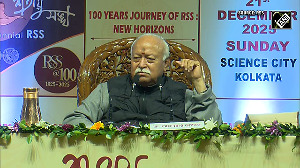In a rare step, the Centre on Tuesday told the Supreme Court that it has decided to make public the reports of Governor Buta Singh that led to the controversial presidential proclamation dissolving the Bihar assembly.
Additional Solicitor General Gopal Subramaniam took the stand before a bench comprising of Chief Justice R C Lahoti, Justice G P Mathur and Justice P K Balasubramanyan, which was hearing pleas of former National Democratic Alliance legislators challenging the dissolution of the house on May 23, that the Centre was ready to make available to parties the copies of the governor's reports.
The disclosure came at a time when senior advocate Soli J Sorabjee was strenuously arguing that reports of the governor dated April 27 and May 21 be placed before the court for judicial scrutiny.
Sorabjee said the court should test whether the reports had sufficient material evidence for the governor to come to a "grave apprehension" of horse-trading in the assembly, which was put under suspended animation since March 7, four days after the declaration of election results.
Getting up in between, Subramaniam said, "The government was waiving privilege over the two reports of the governor in this case", but recorded his statement that waiver of privilege was confined to this case alone and would not be cited as a precedent later.
With this issue getting settled, the bench proceeded to hear arguments on the question as to whether notices could be issued to the governor only to find that the stand of the Attorney General Milon Banerjee was at variance with that of the Centre.





